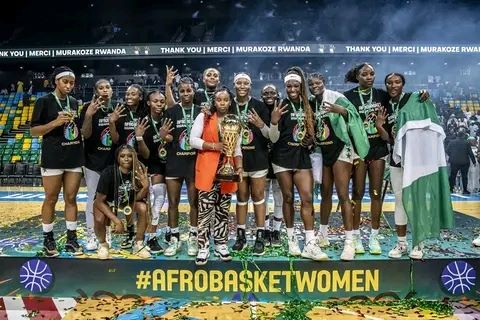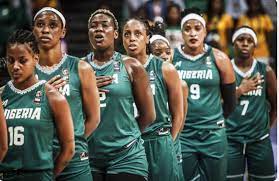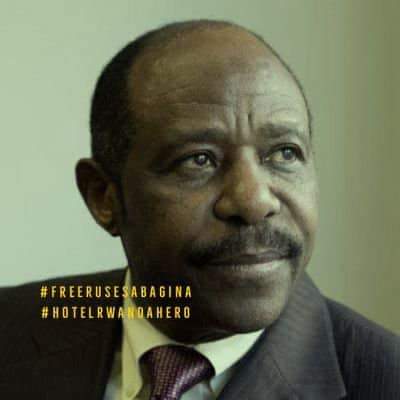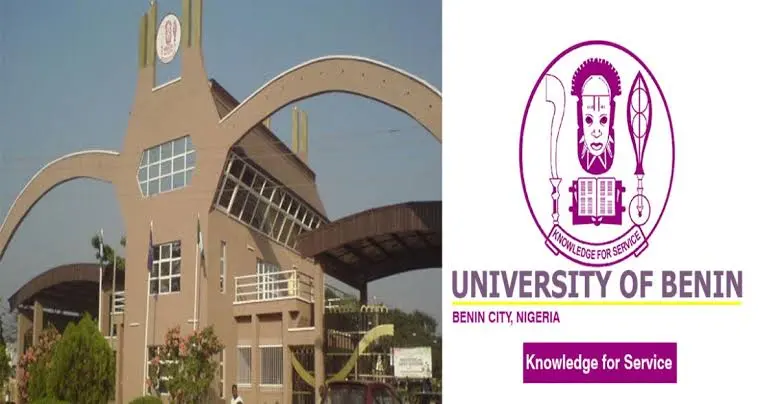No one sees Kigali and remains the same. In many ways, Rwanda embodies Africa’s real triple heritage: the curse of colonial injustice, the tragedy of African misrule and the possibility of redemption and real African renaissance. The capital, Kigali, is at once a place of past regrets, a theatre of recent blood- letting and indeed a symbol of Africa’s hope in the prospect of healing, hope and change born of progressive leadership.
You arrive Kigali with mixed expectations. The allure is irresistible in its ambiguity. You want to see Africa’s much talked about New Jerusalem, rising stubbornly from the red earth of recent historic tragedy. You want to see on the faces of the people signs of recent scars of hurt and collective pain. You want to see the skyline of present day Kigali, the defiance of new skyscrapers reaching to the skies beyond the limitations of the gravity of past ugliness.
You actually hear the hum of new development, the restless bulldozers and towering cranes at countless construction sites, massive presences of international assistance and local initiative in fresh infrastructure. You feel the optimism of a people literally inhabiting a new nation, an African phoenix rising from the ashes of perdition and pain. You are bound to be impressed by the sparkling streets, the intrinsic discipline of a people visibly in a hurry to flee the haunting specter of something dreadful and invisible.
When you unpack and head out later to see what Kigali has to offer, your tour guide nicely reminds you that no trip to Rwanda is ever complete without seeing the ‘other’ side. Knowing what you already know from a distance, you accept a tour of the genocide memorials. You are greeted by graphic photographs of the days of blood and madness. No need for a tour guide’s usual rehash of familiar history. You are face to face with the chilling site of countless skulls and bones of the living dead, the hundreds of thousands of innocent Rwandans, mostly Tutsi, who were massacred in what has become one of the world’s most memorable instances of modern day genocide.
The echoes and parallels come tumbling in from diverse places and times. Auschwitz, Kosovo, Biafra, Mai Lai, Chabra and Chatilla…, past places of blood where the bestiality of humanity has exhibited itself in hundreds and thousands of wasted lives and terminated laughter. It is a trip to hell and back. Some of the hundreds of skulls still wear the final expressions of the departed, the open jaws speak of the anguish of those hacked down when they were most unready to die. Some gaping jaws speak of unheard shouts of protest or defiance, some unspoken wishes in the moment of death and the hour of destiny that will never be heard. Rwanda’s genocide memorial is a gruesome testimony to the fundamental bestiality of humanity when the reins of law, order and common sense are loosened and society comes apart, gripped by tragic misrule. Authority descends into the abyss of apocalyptic anarchy.
When you return to the tranquility of your hotel, you realize that you are visiting two countries in one. The spontaneous hospitality of the people and their new found sense of friendship is perhaps an attempt to hide something terrible and nasty in the history that made skulls and skeletons into objects of irresistible tourist curiosity. In today’s Rwanda, the ugly depressing past of tragedy and hate is an ever present part of ongoing national reconciliation and some tortured love of nation and compatriots.
The story of Rwanda is now a household tale in the world. Deeply entrenched divisive ethnocentric leadership had split a nation down the line. In pre-Kagame Rwanda, you were either Hutu or Tutsi. No middle ground. Two parallel nations under one sovereign. One, the place of hegemonic privileged overlords and the other the abode of those who must obey and live in fear. The road from old Rwanda to the new began in tragedy. Sometimes, the foundations of national greatness are laid in the wombs of tragic accident.
On April 6th, 1994, Juvenal Habyarimana, the Hutu president of Rwanda was assassinated. His presidential jet was making its final approach to land at Kigali airport when it came under a barrage of rocket fire. The president and his entourage were killed. The assassination sparked off what has become one of the world’s most horrendous genocides. The rest has become an iconic blood on the canvas of world history.
The tragic assassination of the president immediately sparked off a gale of mayhem and reprisal killings mostly of the Tutsi minority in a genocidal orgy that consumed an entire nation. Government media, the army and all key institutions of state, being de facto Hutu dominated, became shameless promoters of hate and genocide. The international community was overwhelmed. Death and destruction swept through the entire country in dizzying rapidity, leaving over 800,000 dead. This is the effective backdrop to the emergence of Paul Kagame, a soldier for good, an exemplary statesman and nation builder of historic proportions.
The recent Commonwealth summit in Kigali was an opportunity for world leaders to reaffirm Rwanda’s triumph over evil and hate. Invariably, the visiting leaders had an opportunity to see the genocide memorials. It was a cruel reminder not only of what an indifferent world community failed to do but also of what the deliberate cultivation of hate and divisiveness as a directive principle of state policy in a multi ethnic nation can lead to.
The images of Nigeria’s president, Major General Muhammadu Buhari, as he visited the Kigali genocide memorials evoked both pity and some belated hope that he could perhaps learn something about the consequences of bad leadership. The irresistible temptation is to ask what lessons Buhari took away from that guided tour beyond the diplomatic platitudes and courtesies of his hosts and co leaders. Beyond his physical presence at the memorials, did Mr. Buhari really feel the tragic enormity of that piece of our earth and the memories preserved there? Indeed, did he ask why it was necessary for the Rwandans to keep that memory or a past tragedy forever alive?
For President Paul Kagame, himself a former army officer like Buhari, the Kigali genocide memorial is an unmistakable NEVER AGAIN statement, a permanent reminder to both Rwandans and the world at large that the wrongful deployment of power breeds consequences that reach come to haunt national history and afflict our collective humanity. The genocide memorial has also become for Rwanda a powerful permanent diplomatic public relations poster. Without many words, Paul Kagame has become Africa’s poster kid of national reconciliation and nation building statesmanship.
In a tragic recollection during the visit, Mr. Buhari recalled that Nigeria went through a bloody civil war whose essential prelude was a genocidal outburst no less grave and far- reaching than the Rwandan episode. The president graciously admitted that no less than 2 million Nigerians died in the Nigerian civil war and the crises that led to it. He of course failed to admit that over fifty years after, Nigeria has failed to memorialize our tragic experience. Millions died. Homesteads and property were eviscerated. Fortunes and fates were irreversibly altered for the worst. When the war ended, Nigeria moved on. No conscious effort was made to keep the memories of tragedy forever in our hearts as a deterrence against future misdeeds. Of course some miserable War Museum, a collection of odds and ends from the scrap heaps of war was established in Umuahia.
In terms of present day relevance, Buhari’s Kigali genocide memorial visit is in fact a searing indictment of his own record of power and leadership in the last seven years. Here we have a leader who has consciously divided his nation along all perceivable lines. In seven years under Buhari, the combined death toll of Nigerians that have died from a spate of insecurity is far higher than what is recorded in many declared wars. The figures so far range from 28,000 to 50,000 dead and still counting.
The indicators of Nigeria’s avoidable division under Buhari are everywhere in evidence. Nigerians are now Moslems and Christians, Northerners and Southerners, Arewa, Oduduwa, Biafrans and a thousand other hideous nomenclatures hitherto unheard of. For seven years plus, the dominant language of our national discourse from the high media to the street corners has been hate and division disguised as political debate and identity politics.
The president has himself unfortunately been a merchant of open hate and division. On national television, this president once described one of our major ethnic nationalities as a nation of “dots” surrounded by “a circle” of hostility. He saw no reason why the Igbos should be seeking a fairer Nigerian order and better opportunities in a nation they call theirs since they already own property and businesses all over the country!
At the height of the IPOB separatist agitations and protests, the president threatened the people of the South East region with a repeat of the genocidal violence of the civil war years. In his own words, he promised to speak to them “in a language they understand”. This hardly veiled threat was viewed by Twitter as hate speech leading to the Twitter post by the Nigerian presidency being taken down. The instant reprisal was the authoritarian shut down of Twitter in Nigeria for over a year.
In the security crackdown on the South East ostensibly against the IPOB separatists, Mr. Buhari ordered a combined police and military garrisoning of the entire South East region. Hundreds of youth have been arrested, detained without trial and, in some cases, remain unaccounted for in the name of internal security. The Nigerian security establishment is yet to give a convincing account of the whereabouts of many innocent citizens in the region.
His visit to the Kigali genocide memorial ought to have jolted Mr. Buhari to the dire consequences of the kind of divisive politics and policies that he has presided over in Nigeria over the last seven years.
The present frightening gale of insecurity and virtual meltdown of the Nigerian state can only be a crime against the Nigerian state and people. The most elementary guarantee of the security of life and limbs has drifted away in most parts. An array of casual criminal gangs have virtually overrun the entire country thereby abridging the freedom of citizens to move freely in a nation they call home. All over the country, it is an unbroken tale of kidnappings, assassinations, senseless killings, armed robbery and rape. On nearly every lip, insecurity has become a unifying idiom that cuts across our multiple divides, afflicting the lowly and the mighty alike.
As citizens scamper for whatever protection they can find, regional security formations have sprouted in rapid succession. From the primordial dark forests of ancestry, politicians are invoking mostly animals of prey for names of their regional security outfits. The choice of predators to convey the hunger to protect one’s region is also a metaphor of what Nigeria under Major General Buhari has become. This place is degenerating into a Hobbesian jungle in which life is short and brutish while clashing factions prime to consume each other in a frenzy of rapacious hate dripping with blood. The current national landscape is no longer recognizable as the Nigeria we once knew and loved.
There is nothing wrong with President Buhari tagging along to visit the places that other world leaders go to edify their nations and status. But the challenge is for him to take away the lessons of those excursions to reassess his own performance record at home.
As Buhari strolls carelessly towards the exit gate of power, it is doubtful that he can absolve himself of the seven years during which he has led a once united nation to the precipice of the kind of apocalypse that produced the Rwandan genocide. It was not for want of trying. It was just that some intangible bond holding Nigerians together has refused to tip the balance in favour of the bloody conflagration that Mr. Buhari has worked so hard to inaugurate.







